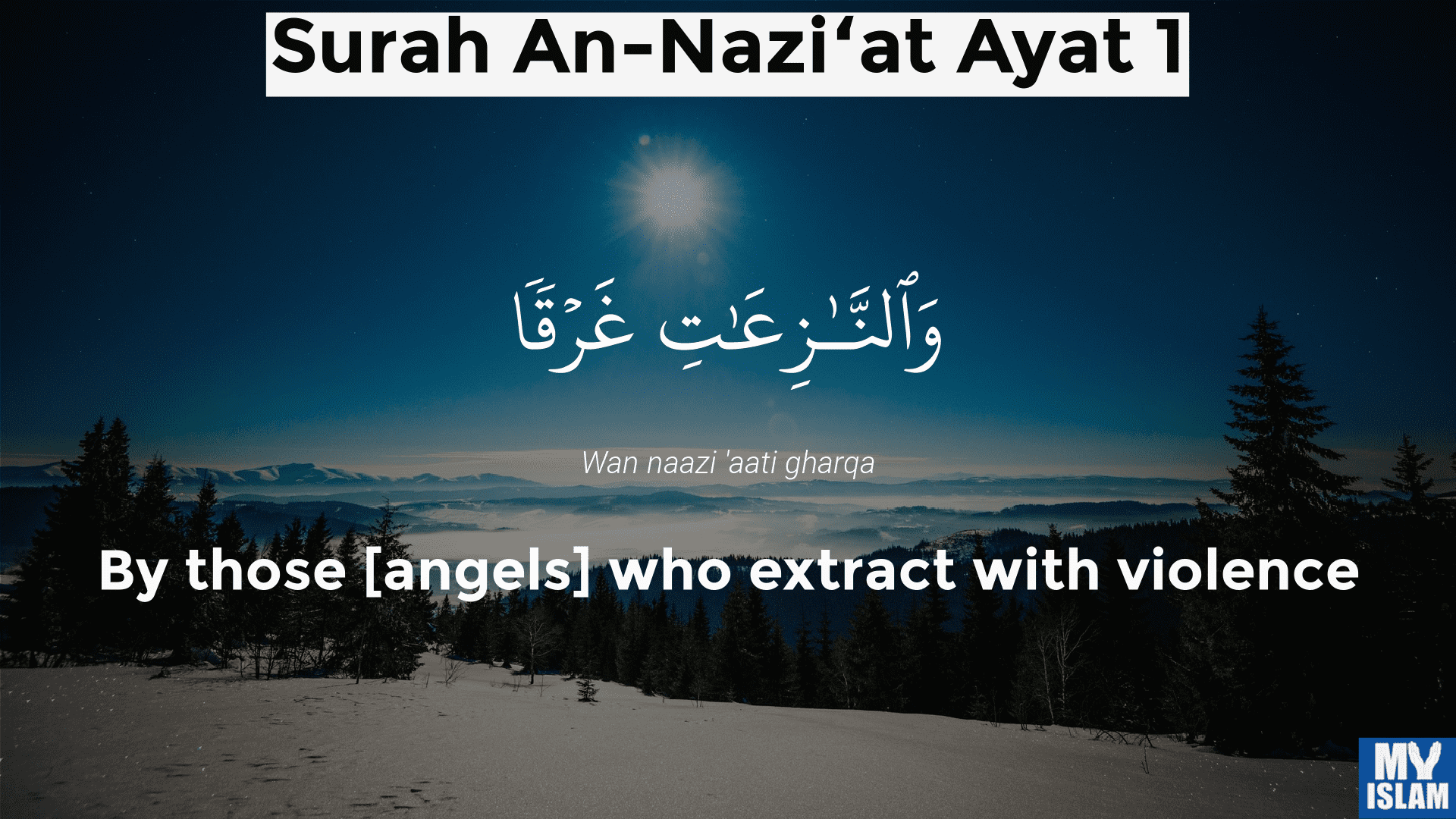Surah Nazi’at Ayat 23 in Arabic Text
English Translation
Here you can read various translations of verse 23
And he gathered [his people] and called out
Then he collected (his men) and made a proclamation,
and gathered his people and declared:
Then he gathered his people and cried aloud,
Then gathered he and summoned
So he mustered and called out,
gathered his people, proclaiming,
پھر سب کو جمع کرکے پکارا
Quran 79 Verse 23 Explanation
For those looking for commentary to help with the understanding of Surah Nazi’at ayat 23, we’ve provided two Tafseer works below. The first is the tafseer of Abul Ala Maududi, the second is of Ibn Kathir.
Ala-Maududi
(79:23) and gathered his people and declared:[11]
11. This proclamation of Pharaoh has been mentioned at several places in the Quran. On one occasion he said to the Prophet Moses (peace be upon him): If you took another one as a deity beside me, I would cast you in the prison.(Surah Ash-Shuara, Ayat 29). On another occasion he had addressed his courtiers, saying: O chiefs, I do not know of any god of yours other than myself. (Surah Al-Qasas, Ayat 38). By this Pharaoh did not mean, nor could he ever mean, that he himself was the creator of the universe and he had made the world, nor that he denied the existence of Allah and claimed to be lord of the universe, nor that he regarded only himself as a deity of the people in the religious sense. In the Quran itself there is a clear testimony that as regards to religion he himself worshipped other gods. Once his courtiers said to him: Will you leave Moses (peace be upon him) and his people free to spread chaos in the land, and let them discard you and your deities? (Surah Al-Aaraf, Ayat 127). And in the Quran itself this saying of the Pharaoh has also been cited: Had Moses (peace be upon him) been sent by Allah, why were not bracelets of gold sent down to him, or a company of angels as attendants? (Surah Az-Zukhruf, Ayat 53). Thus, in fact, he called himself a god and supreme deity not in the religious but in the political sense. What he meant was that he possessed the sovereign rights: no one beside him had the right to rule in his kingdom and there was no superior power whose orders could be enforced in the land. For further explanation. see (Surah Al- Aaraf, ayat 104); (Surah TaHa, ayat 49); (Surah Ash- Shuara, ayat 31); (Surah Al-Qasas, ayat 38); (Surah Az-Zukhruf, ayat 53).
Ibn-Kathir
The tafsir of Surah An-Naziat verse 23 by Ibn Kathir is unavailable here.
Please refer to Surah Naziat ayat 15 which provides the complete commentary from verse 15 through 26.
Quick navigation links






